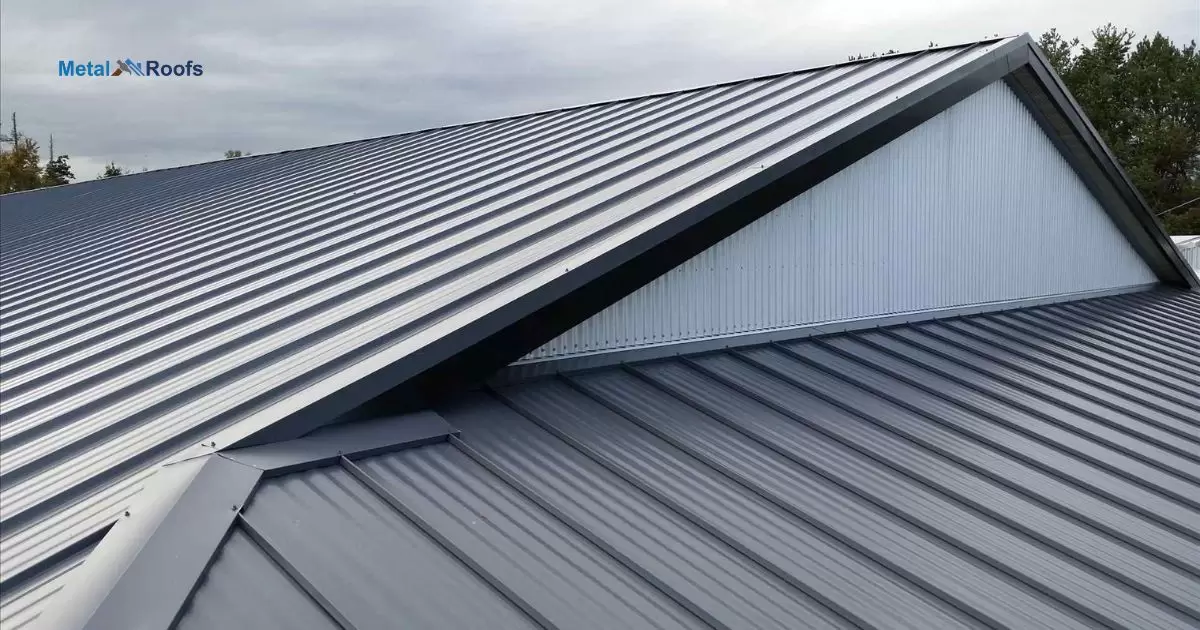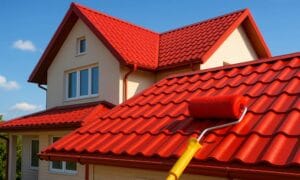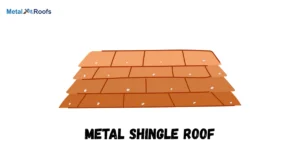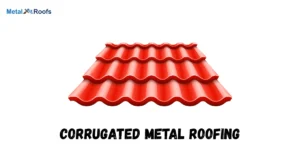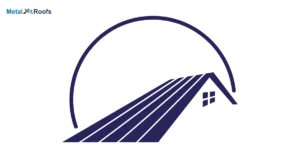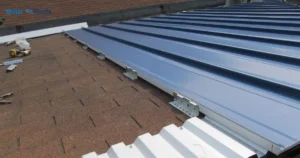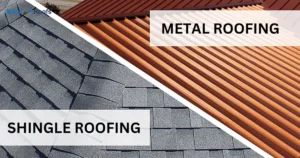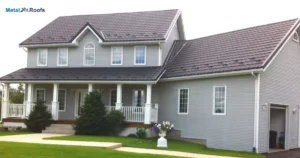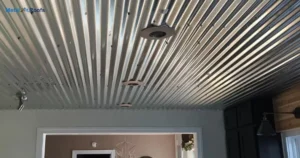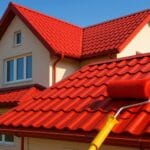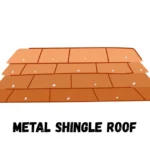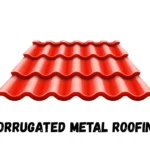Metal roofs can be noisy during rain or hail storms. The sound amplifies as raindrops hit the metal surface. Poor insulation makes metal roofs noisier indoors. Loose panels or fasteners increase rattling noises. Proper installation and insulation reduce noise issues.
Are metal roofs noisy? Many homeowners face this concern. Metal roofs have pros like durability and fire safety. but noise can be a major drawback for some people. Let’s explore if metal roofs are really noisier. key factors like insulation and installation matter.
Noise levels vary based on roof type and installation. Metal roof thermal expansion noise is minimized with standing seam metal roofs and proper underlayment. Loose panels or fasteners can amplify noise, highlighting the importance of professional installation.
Key Takeaways
- Metal roofs can be noisy during rain or hail storms
- Sound amplifies when raindrops hit the metal surface
- Poor insulation makes metal roofs noisier indoors
- Loose panels or fasteners increase rattling noises
- Proper installation and insulation reduce noise issues
- Standing seam metal roofs tend to be quieter
- Correct underlayment and insulation reduce sound transfer
What Causes Metal Roof Noise?
| Causes | Description |
| Precipitation | Rain or hail hitting the metal surface during storms contributes to metal roof noise. |
| Lack of Insulation | Insufficient insulation between panels and the roof deck amplifies noise inside the house. |
| Roof Pitch | The angle of the roof affects how rain or hail strikes, influencing noise levels on the metal surface. |
| Absence of Underlayment | Without proper underlayment, noise transmission into the house increases. |
| Loose Panels or Fasteners | Loose components create rattling noises during storms, intensifying overall metal roof noise. |
Metal roof noise mainly occurs during rain or hailstorms. The sound arises when precipitation hits the metal surface. Factors such as roof pitch and lack of insulation can amplify the noise.
The absence of underlayment or solid sheathing beneath the metal panels can contribute to increased noise levels.
Modern metal roofs often come with features like insulation and soundproofing materials to minimize such disturbances. With proper installation and maintenance, metal roofs can be relatively quiet even during heavy rainfall.
How To Reduce Metal Roof Noise?
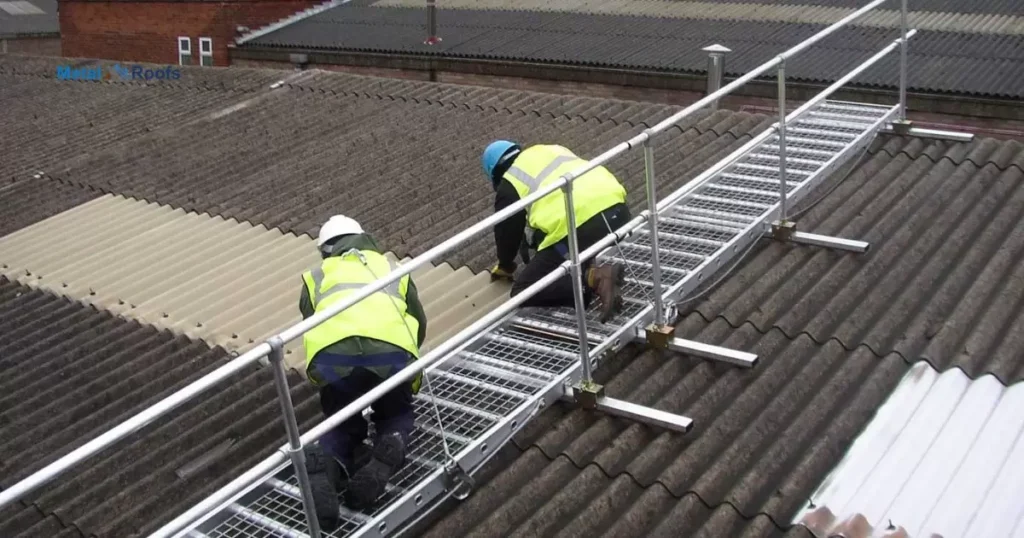
To reduce metal roof noise, start by adding insulation between the metal panels and the roof deck. This helps absorb sound and reduces the noise level during rain or hailstorms.
Consider installing a solid sheathing underneath the metal roofing material. This provides another layer of sound insulation and minimizes the transmission of noise into the living space. With these steps, you can enjoy a quieter environment even with a metal roof.
Metal Roof Noise A Common Issue
- Metal roof noise is a common issue for homeowners, particularly during rainy or windy conditions.
- To reduce metal roof noise, consider installing insulation between the metal panels and the roof deck.
- Insulation helps absorb sound vibrations and minimizes noise transmission into the house.
- Adding a solid sheathing beneath the metal roofing material provides additional sound insulation.
- By implementing these strategies, homeowners can effectively reduce metal roof noise and create a quieter indoor environment.
Metal Roofs Loud When It Rains
Metal roofs can be loud when it rains. The noise depends on factors like metal type and installation. Modern metal roofs often have insulation to dampen sound.
With proper installation, they’re not necessarily noisier than other roofs. Attic space and roof pitch also affect noise levels. Metal roofs can be relatively quiet even during heavy rain.
Benefits Of Metal Roofs Regarding Noise
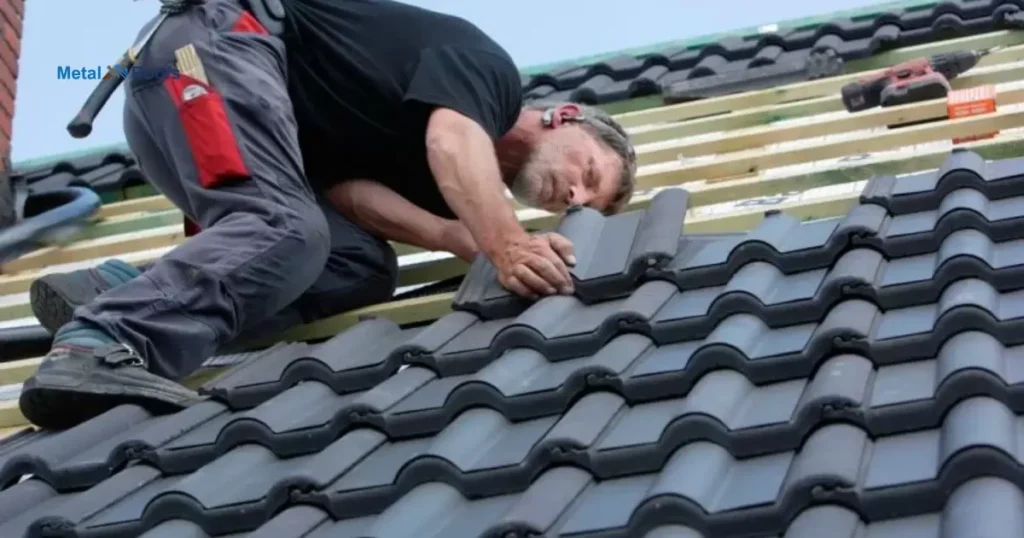
Metal roofs can seem noisy during rain or hailstorms. Newer metal roofs come with noise-reducing features. Proper insulation and installation minimize sound. Metal roofs can be as quiet as other roofing materials. Attic space and roof pitch affect noise levels.
Sound Insulation Properties
Metal roofs offer excellent sound insulation properties. They dampen noise from rain or hail. Modern metal roofs come with insulation layers. This reduces indoor noise levels effectively. Metal roofs contribute to a quieter living environment.
Long-Term Noise Reduction
Long-term noise reduction is another benefit of metal roofs. With proper insulation and installation, they stay quiet over time. This means ongoing peace and quiet indoors.
Metal roofs maintain their noise-reducing properties for years. Enjoy a peaceful home environment for the long haul.
Environmental Soundness
Metal roofs contribute to environmental soundness. They are often made from recycled materials. Metal roofs are recyclable at the end of their lifespan. This reduces waste and promotes sustainability. Metal roofs are energy-efficient, lowering cooling costs.
Effective Installation Reduces Metal Roof Noise
Effective installation is key to reducing metal roof noise. Insulation and underlayment play crucial roles in dampening sound. Properly installed metal roofs can be as quiet as other roofing materials.
Attentive installation ensures a snug fit, minimizing vibrations. Well-insulated attics absorb sound, reducing noise transmission.
Expert installation techniques prevent potential rattling or creaking noises. Overall, meticulous installation practices are essential for minimizing metal roof noise.
Some Metal Roof Types Are Quieter
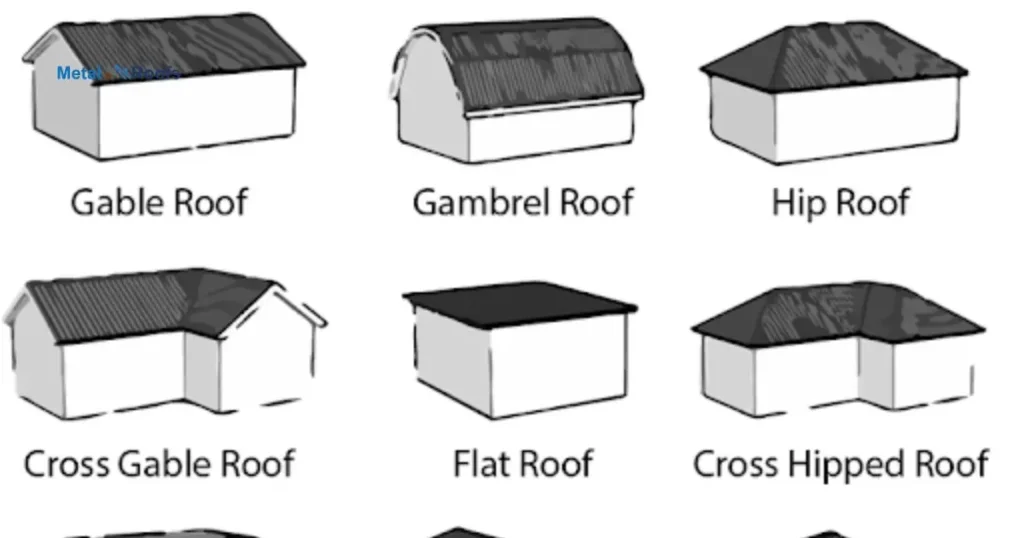
Yes, that’s correct. Metal roofs can vary in their noise levels depending on several factors including the type of metal, its thickness, the method of installation, and the presence of additional insulation or underlayment. Some metal roof types are indeed quieter than others.
Here are a few reasons why certain metal roof types may be quieter:
Insulation: Adding insulation beneath the metal roofing panels can help dampen sound transmission, reducing the noise caused by rain, hail, or other external factors.
Panel Design: Certain metal roof designs feature special shapes or profiles that can help reduce noise by dispersing sound waves more effectively.
Coatings: Some metal roofs come with coatings or finishes designed to absorb sound, which can contribute to a quieter environment.
Underlayment: Installing a sound-deadening underlayment between the metal roof panels and the roof deck can help minimize noise transmission.
Thicker Materials: Thicker gauge metals or composite materials can absorb more sound, resulting in quieter roofs compared to thinner materials.
It’s essential for homeowners considering a metal roof to discuss noise concerns with their roofing contractor and explore options that best suit their preferences and needs.
Weather Influences Metal Roof Noise
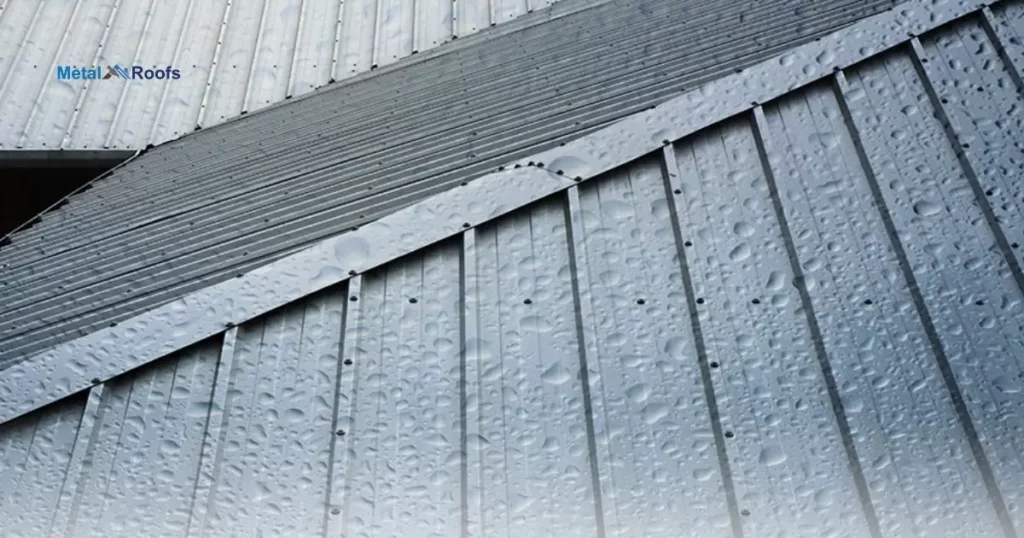
Weather affects metal roof noise. Rain hitting metal can sound louder. Proper insulation, noise can be reduced. Insulation absorbs sound, making the roof quieter during rainstorms.
Snow accumulation can also impact noise levels. The weight of snow can dampen sound, making the roof quieter. Overall, weather conditions play a role in determining the noise level of metal roofs, but proper insulation and structural design can mitigate these effects.
Frequently Asked Questions
How Noisy Is A Metal Roof On A House?
Metal roofs on houses can be noisy during heavy rain or hailstorms. However, noise levels vary based on factors like the type of metal and insulation.
How Do You Stop A Metal Roof From Making Noise?
To minimize noise from a metal roof, consider installing insulation or underlayment. Choose thicker metal or textured panels.
What Is The Quietest Roof Material?
Metal roofs are quieter than people think. However, for absolute tranquility, consider materials like slate or clay tiles.
Conclusion
Metal roofs offer durability and energy efficiency benefits. But noise can be an issue for some homeowners. Proper insulation and installation minimize sound transfer indoors. Consult professionals for quieter metal roof solutions.
Metal roof noise depends on several factors. Roof type, underlayment, insulation, and installation quality matter. Weigh pros and cons based on your priorities. Make an informed decision for your home.
